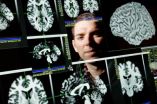(Press-News.org) Antidepressant prescriptions in the UK have increased by 9.6% in 2011, to 46 million prescriptions. Does this reflect overmedicalisation or appropriate treatment? Two experts debate the issue on bmj.com today.
Glasgow GP, Dr Des Spence, thinks that "we use antidepressants too easily, for too long, and that they are effective for few people (if at all)"
He acknowledges that depression is an important illness, but argues that the current definition of clinical depression (two weeks of low mood – even after bereavement) "is too loose and is causing widespread medicalisation." He also points out that 75% of those who write these definitions have links to drug companies.
National Institute for Health and Clinical Excellence (NICE) guidelines do not support the use of antidepressant medication in mild depression, nor necessarily as first line treatment of moderate depression. Instead, they promote talking therapies.
"But even if we accept that antidepressants are effective, a Cochrane review suggests that only one in seven people actually benefits. Thus millions of people are enduring at least six months of ineffective treatment," he writes.
He is unconvinced by research showing that depression is undertreated and that antidepressants are being used appropriately, saying "the only explanation is that we are prescribing more antidepressants to ever more people."
He also questions the view that depression is a mere chemical imbalance and concludes: "Improving society's wellbeing is not in the gift of medicine nor mere medication, and overprescribing of antidepressants serves as a distraction from a wider debate about why we are so unhappy as a society. We are doing harm."
But Ian Reid, Professor of Psychiatry at the University of Aberdeen, says the claim that antidepressants are overprescribed "needs careful consideration."
He argues that the rise in prescriptions is due to small but appropriate increases in the duration of treatment, rather than more patients being treated, and that increased use of antidepressants in other conditions "has compounded misunderstanding."
He refutes the idea that GPs are handing out antidepressants "like sweeties" and points to a survey showing "cautious and conservative prescribing" among GPs in Grampian. He also points to "methodological flaws and selective reporting" of data showing that antidepressants are no better than placebo except in severe depression. Instead, he says, practice is supported by evidence.
Finally, he dismisses reports that limited availability of psychological therapy leads to inappropriate antidepressant prescription, saying there is no consistent relation between the availability of psychological therapies and antidepressant use.
"Antidepressants are but one element available in the treatment of depression, not a panacea," he writes. "Like 'talking treatments' (with which antidepressants are entirely compatible), they can have harmful side effects, and they certainly don't help everyone with the disorder. But they are not overprescribed. Careless reportage has demonised them in the public eye, adding to the stigmatisation of mental illness, and erecting unnecessary barriers to effective care."
### END
Are antidepressants overused?
Head to head: Are antidepressants overprescribed?
2013-01-23
ELSE PRESS RELEASES FROM THIS DATE:
Postpartum hemorrhage during a first pregnancy does not affect future fertility
2013-01-23
First pregnancies complicated by postpartum haemorrhage (PPH) have no detrimental effect on future fertility but women who have caesarean sections at the time of PPH are less likely to conceive again, finds a new study published today (23 January) in BJOG: An International Journal of Obstetrics and Gynaecology.
There has been a rise in the overall rate of PPH (where blood loss is >500ml) in the UK, due to increases in maternal risk factors and in the number of caesarean sections performed. Women who undergo caesarean section deliveries are more likely to suffer PPH than ...
Business, government can span tech divide for people with disabilities
2013-01-23
UNIVERSITY PARK, Pa. -- Forging public and private partnerships that encourage broadband access for people with disabilities may help bridge a technological divide that hinders them from reaching their potential, according to an international team of researchers.
Besides connecting people who have disabilities with resources that may help them become more independent, equipping them with broadband technology can also benefit society and ease the financial burden on taxpayers, said Krishna Jayakar, associate professor of communications, Penn State.
"The benefits of bridging ...
When will we all live to 100?
2013-01-23
Databriefing: How long can we expect to live?
An article from John Appleby, Chief Economist at the Kings Fund, published on bmj.com today brings attention to the rising amount of those expected to live to 100 and asks where it will end.
According to the Office of National Statistics there seems to be "no end in sight" as far as the number of UK citizens reaching 100 years old is concerned. Approximately 13% of girls born in 1951 are expected to reach this milestone, increasing to 40% for girls born this year and a predicted 60% of those born in 2060.
Appleby attributes ...
Researchers map emotional intelligence in the brain
2013-01-23
CHAMPAIGN, Ill. — A new study of 152 Vietnam veterans with combat-related brain injuries offers the first detailed map of the brain regions that contribute to emotional intelligence – the ability to process emotional information and navigate the social world.
The study found significant overlap between general intelligence and emotional intelligence, both in terms of behavior and in the brain. Higher scores on general intelligence tests corresponded significantly with higher performance on measures of emotional intelligence, and many of the same brain regions were found ...
Wood on the seafloor -- an oasis for deep-sea life
2013-01-23
This press release is available in German.Trees do not grow in the deep sea, nevertheless sunken pieces of wood can develop into oases for deep-sea life - at least temporarily until the wood is fully degraded. A team of Max Planck researchers from Germany now showed how sunken wood can develop into attractive habitats for a variety of microorganisms and invertebrates. By using underwater robot technology, they confirmed their hypothesis that animals from hot and cold seeps would be attracted to the wood due to the activity of bacteria, which produce hydrogen sulfide during ...
Vitamin D holds promise in battling a deadly breast cancer, Saint Louis University researchers say
2013-01-23
ST. LOUIS -- In research published in the Jan. 21 issue of The Journal of Cell Biology, a team led by Susana Gonzalo, Ph.D., assistant professor of biochemistry and molecular biology at Saint Louis University, has discovered a molecular pathway that contributes to triple-negative breast cancer, an often deadly and treatment resistant form of cancer that tends to strike younger women. In addition, Gonzalo and her team identified vitamin D and some protease inhibitors as possible new therapies and discovered a set of three biomarkers that can help to identify patients who ...
In the land of the free, interdependence undermines Americans' motivation to act
2013-01-23
Public campaigns that call upon people to think and act interdependently may undermine motivation for many Americans, according to new research published in Psychological Science, a journal of the Association for Psychological Science.
Americans are repeatedly exposed to messages urging them to think and act with others in mind, telling us, for example, to act sustainably by bringing reusable bags to the grocery store or to act responsibly by getting a flu shot. Researchers MarYam Hamedani, Hazel Rose Markus, and Alyssa Fu of Stanford University wondered what impact these ...
First global assessment of land and water 'grabbing' published in national journal
2013-01-23
As world food and energy demands grow, nations and some corporations increasingly are looking to acquire quality agricultural land for food production. Some nations are gaining land by buying up property – and accompanying water resources – in other, generally less wealthy countries.
Sometimes called "land grabbing," this practice can put strains on land and water resources in impoverished countries where the land, and needed water, has been "grabbed" for commercial-scale agriculture.
A new study by the University of Virginia and the Polytechnic University of Milan, ...
USDA studies confirm plant water demands shift with water availability
2013-01-23
WASHINGTON, January 22, 2012—Plants can adapt to extreme shifts in water availability, such as drought and flooding, but their ability to withstand these extreme patterns will be tested by future climate change, according to a study by U.S. Department of Agriculture (USDA) scientists and their cooperators.
The study was published this week in Nature by a team of Agricultural Research Service (ARS) scientists led by Guillermo Ponce Campos and Susan Moran and an Australian team led by Alfredo Huete from the University of Technology, Sydney (UTS). This research included ...
Just add water: How scientists are using silicon to produce hydrogen on demand
2013-01-23
BUFFALO, N.Y. — Super-small particles of silicon react with water to produce hydrogen almost instantaneously, according to University at Buffalo researchers.
In a series of experiments, the scientists created spherical silicon particles about 10 nanometers in diameter. When combined with water, these particles reacted to form silicic acid (a nontoxic byproduct) and hydrogen — a potential source of energy for fuel cells.
The reaction didn't require any light, heat or electricity, and also created hydrogen about 150 times faster than similar reactions using silicon particles ...
LAST 30 PRESS RELEASES:
Asteroid samples offer new insights into conditions when the solar system formed
Fecal transplants from older mice significantly improve ovarian function and fertility in younger mice
Delight for diastereomer production: A novel strategy for organic chemistry
Permafrost is key to carbon storage. That makes northern wildfires even more dangerous
Hairdressers could be a secret weapon in tackling climate change, new research finds
Genetic risk for mental illness is far less disorder-specific than clinicians have assumed, massive Swedish study reveals
A therapeutic target that would curb the spread of coronaviruses has been identified
Modern twist on wildfire management methods found also to have a bonus feature that protects water supplies
AI enables defect-aware prediction of metal 3D-printed part quality
Miniscule fossil discovery reveals fresh clues into the evolution of the earliest-known relative of all primates
World Water Day 2026: Applied Microbiology International to hold Gender Equality and Water webinar
The unprecedented transformation in energy: The Third Energy Revolution toward carbon neutrality
Building on the far side: AI analysis suggests sturdier foundation for future lunar bases
Far-field superresolution imaging via k-space superoscillation
10 Years, 70% shift: Wastewater upgrades quietly transform river microbiomes
Why does chronic back pain make everyday sounds feel harsher? Brain imaging study points to a treatable cause
Video messaging effectiveness depends on quality of streaming experience, research shows
Introducing the “bloom” cycle, or why plants are not stupid
The Lancet Oncology: Breast cancer remains the most common cancer among women worldwide, with annual cases expected to reach over 3.5 million by 2050
Improve education and transitional support for autistic people to prevent death by suicide, say experts
GLP-1 drugs like Ozempic could cut risk of major heart complications after heart attack, study finds
Study finds Earth may have twice as many vertebrate species as previously thought
NYU Langone orthopedic surgeons present latest clinical findings and research at AAOS 2026
New journal highlights how artificial intelligence can help solve global environmental crises
Study identifies three diverging global AI pathways shaping the future of technology and governance
Machine learning advances non targeted detection of environmental pollutants
ACP advises all adults 75 or older get a protein subunit RSV vaccine
New study finds earliest evidence of big land predators hunting plant-eaters
Newer groundwater associated with higher risk of Parkinson’s disease
New study identifies growth hormone receptor as possible target to improve lung cancer treatment
[Press-News.org] Are antidepressants overused?Head to head: Are antidepressants overprescribed?

